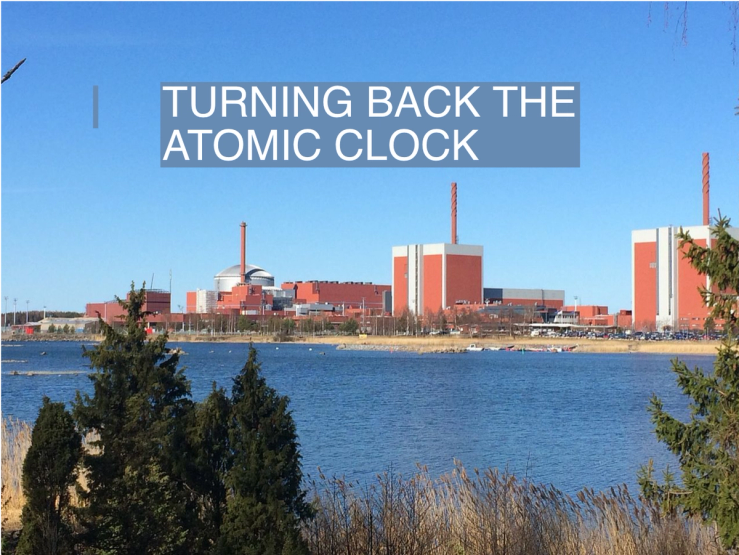The News
Many European nations are reinvesting in or reconsidering nuclear power after years of declining use, as Moscow’s full-scale invasion of Ukraine last year exposed the region’s reliance on Russian energy.
Finland opened a new nuclear power plant last month, sending electricity prices down by 75%. France just passed a law accelerating the construction of new reactors, while Poland, Hungary, and Sweden are looking to expand their nuclear fleet.
Here’s a look in five charts at nuclear power’s waning global role, and why it may be primed for a comeback.
In this article:
Know More
After decades of rapid growth global nuclear energy output plateaued around 2006. Concerns about its safety spiked after the 2011 Fukushima nuclear reactor disaster in Japan, with output falling to levels not seen since the mid-90s.
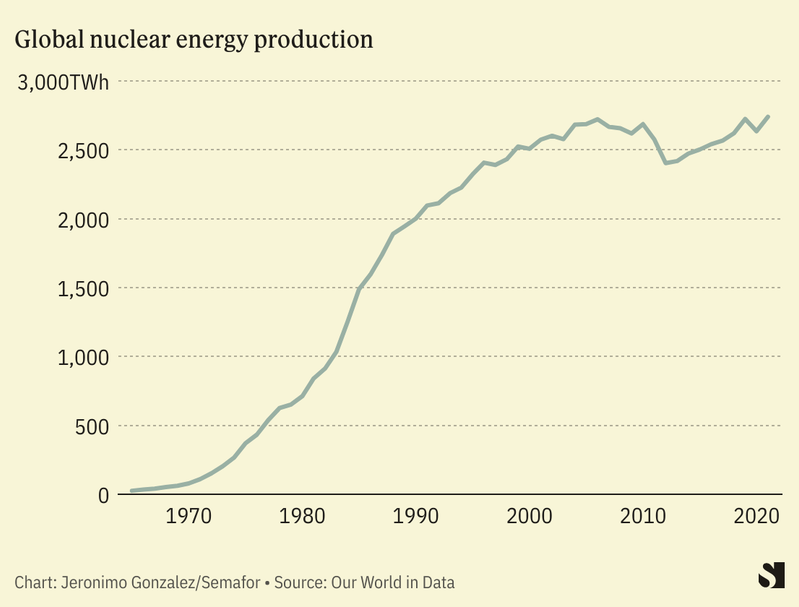
Despite the backlash against nuclear power after 2011, it remains one of the safest forms of electricity generation. According to Our World in Data, the death rate from accidents and pollution per unit of electricity produced is just 0.04% for nuclear energy, compared to nearly 25% for coal.
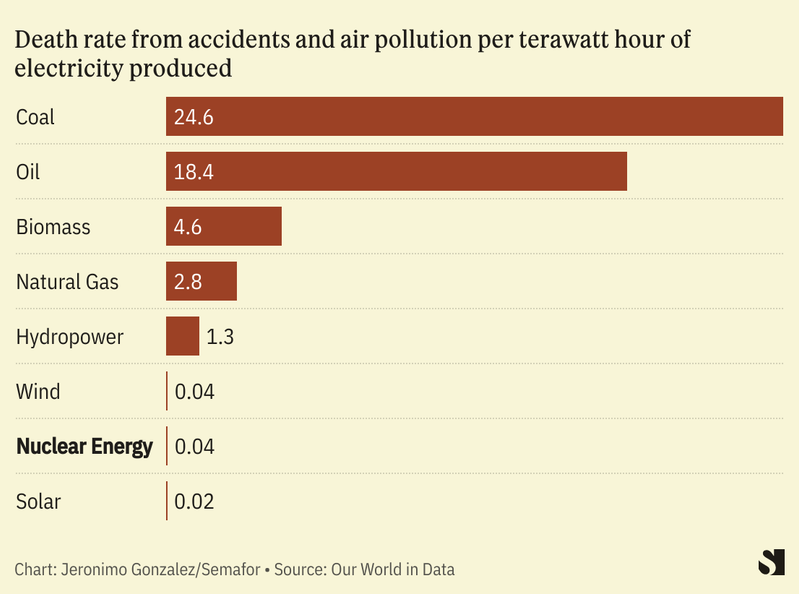
When it comes to greenhouse gas emissions, nuclear is also one of the cleanest sources of energy. Coal’s emissions per unit of electricity produced is 273 times higher than that for nuclear power, while oil’s is 180 times larger.
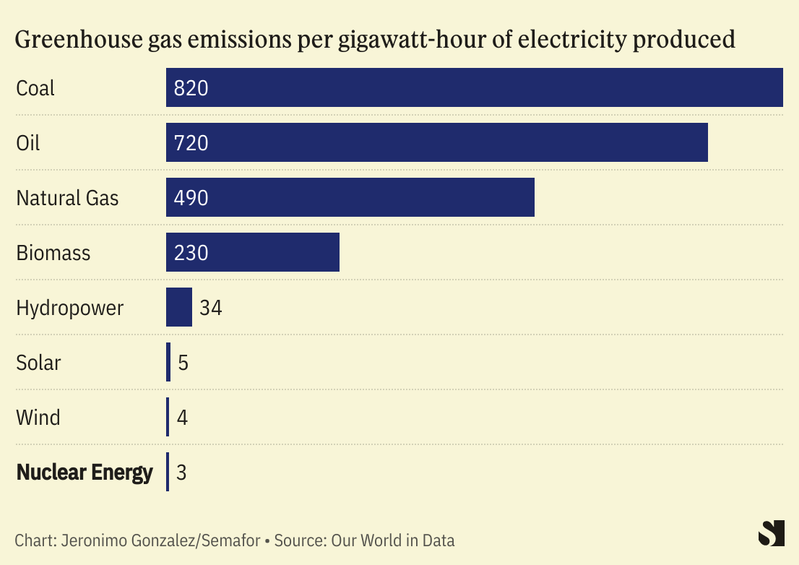
The share of global electricity production from nuclear power has been falling for the past 30 years.
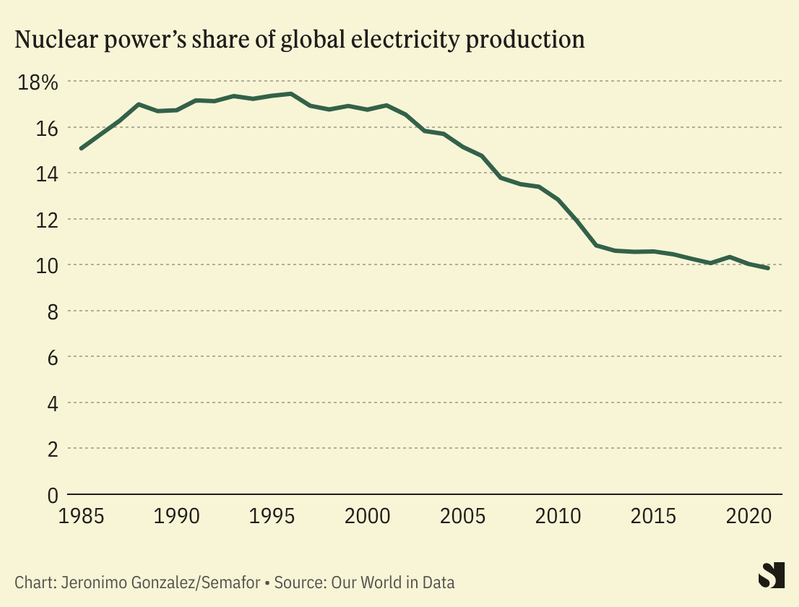
The View From Germany
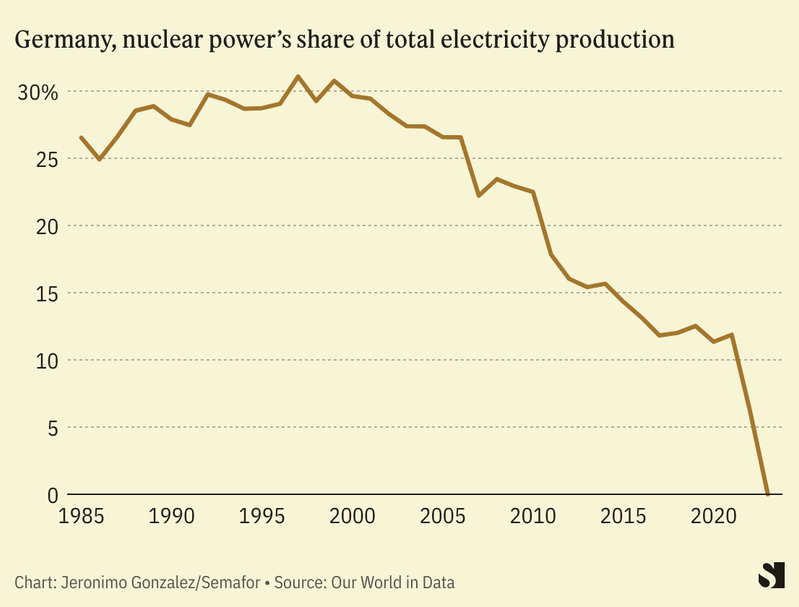
Going against the reemerging interest in nuclear energy is Germany, which closed down its two last remaining nuclear power plants earlier this year.
In the 1990s it produced close to 30% of its electricity from nuclear power. Output started to drop in the early 2000s, and fell sharply after the 2011 Fukushima disaster, as the government committed to cutting nuclear power soon after.
Quoteworthy
“It seems increasingly likely that we are witnessing the dawn of a new nuclear era,” Haley Zaremba wrote for the energy business outlet OilPrice.com. Although she warns that the world needs to build nuclear expertise and supply chains that aren’t reliant on China and Russia, which invested in their nuclear industries while Western nations neglected theirs.


